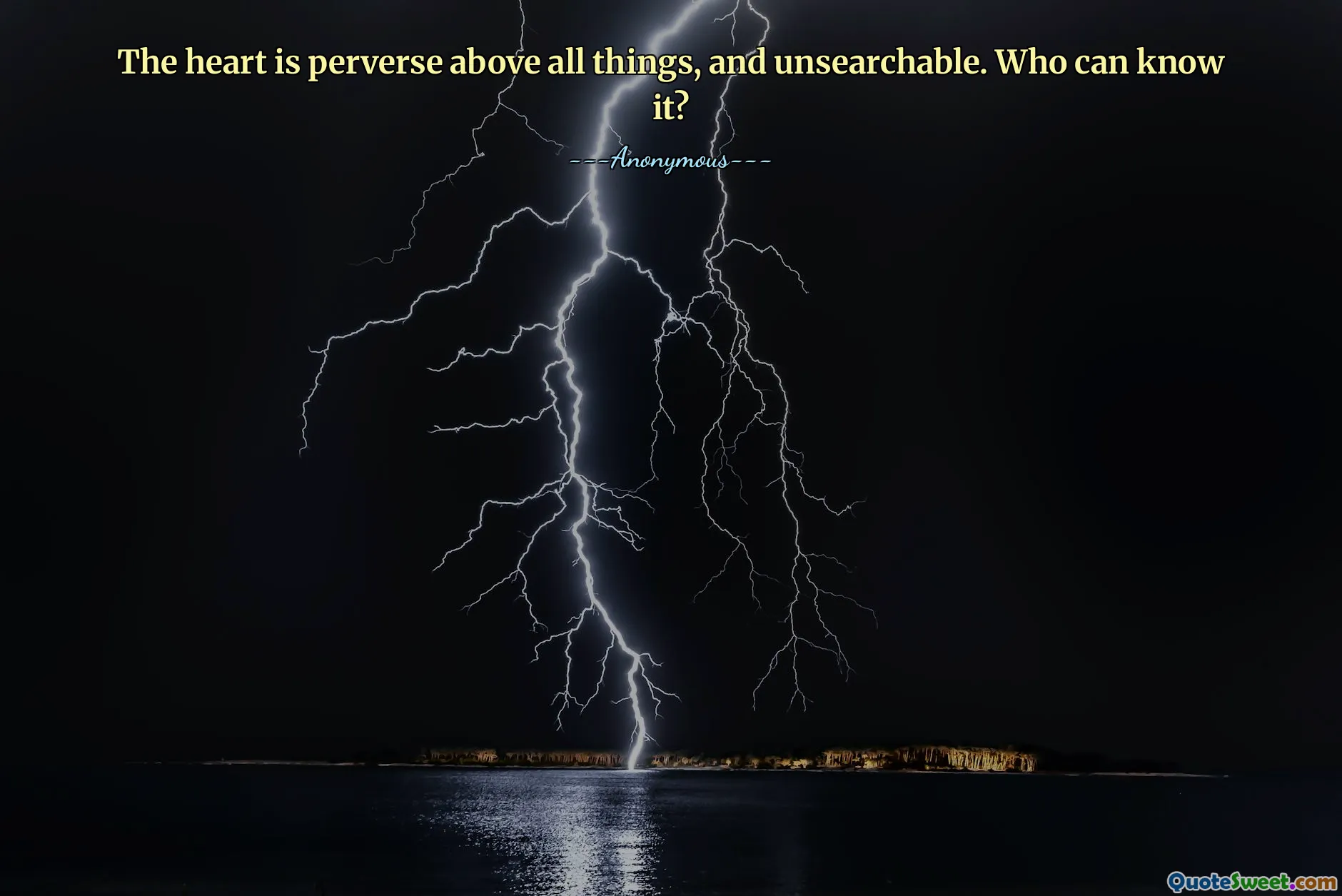
The heart is perverse above all things, and unsearchable. Who can know it?
This quote poignantly captures the enigmatic nature of the human heart, suggesting that it is inherently irrational and beyond complete understanding. When we speak of the "heart," we often refer metaphorically to the core of human emotion, desire, and will. The term "perverse" here suggests a fundamental unpredictability or waywardness—not necessarily in a strictly negative sense, but as an assertion that the human spirit can defy logical expectations and reason itself. The phrase "and unsearchable" underscores the mystery of inner human experience, implying that no amount of analysis or observation can ever fully penetrate or predict the complexities of our feelings and motivations. This resonates deeply with anyone who has felt conflicted emotions—torn desires or contradictions within themselves that defy simple rational explanation.
In a broader philosophical or theological context, this quote hints at the limits of human self-knowledge and also the limitations of our understanding of others. How often do people surprise us with their actions or feelings that seem contrary to logic or prior experience? This quote courageously acknowledges the inscrutability of the inner self and challenges us to embrace humility regarding the depths of human nature. It also invites a compassionate stance; since no one truly knows another's heart, we should be cautious in judgment and respectful of the mysteries each person carries within. Ultimately, this reflection on the heart’s perversity and unsearchability calls us to acknowledge complexity, accept uncertainty, and embrace the profound mystery inherent in all of us.











